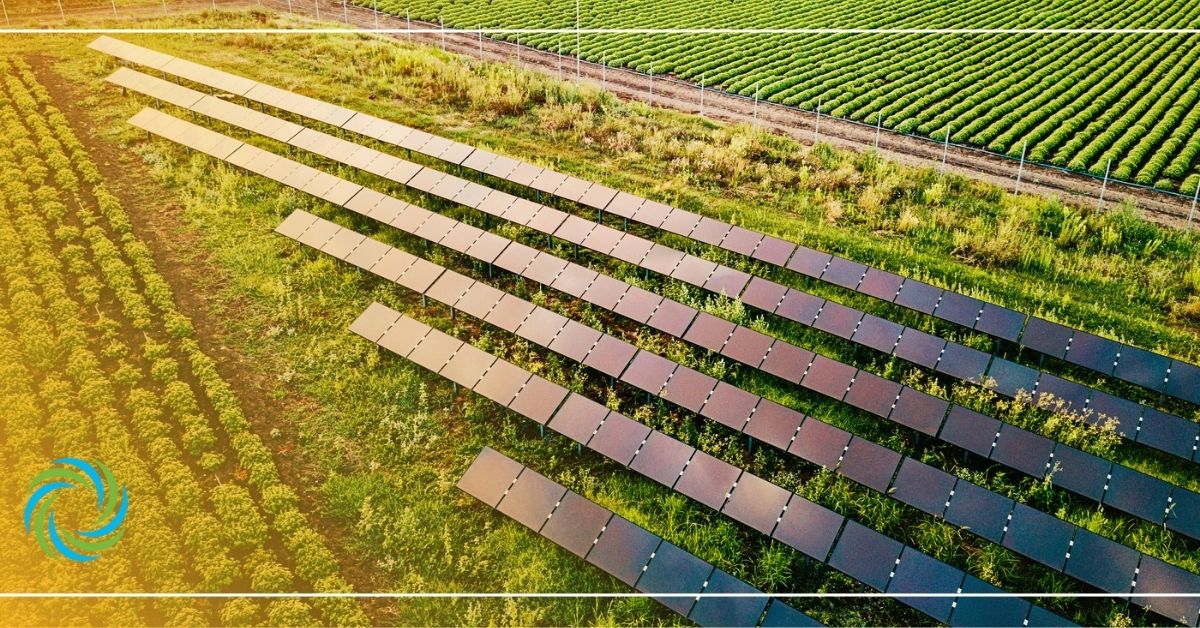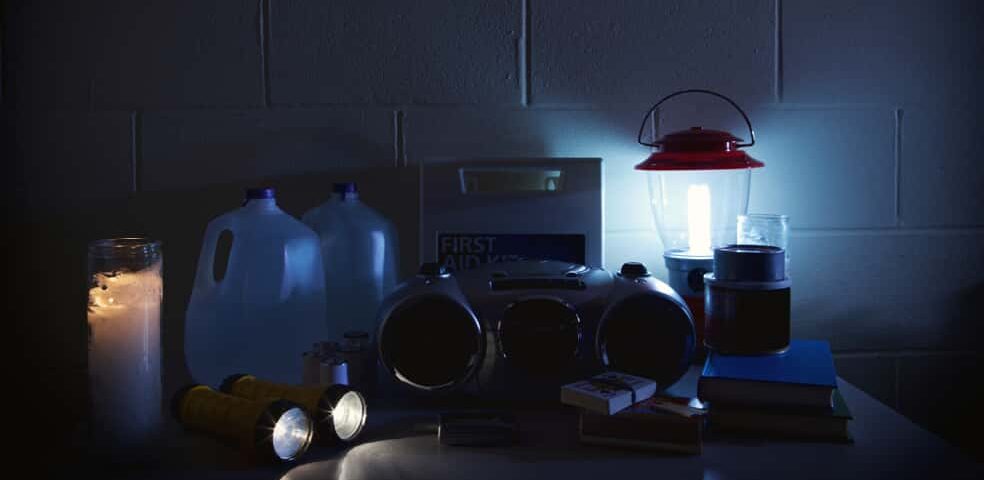
What to Look for When Buying Commercial Solar Panels
February 12, 2021
Solar Energy in Agriculture | PurePoint Energy
July 15, 2021
What to Look for When Buying Commercial Solar Panels
February 12, 2021
Solar Energy in Agriculture | PurePoint Energy
July 15, 2021Solar energy has been making headlines for over a decade now, but the advantages of energy storage for commercial businesses are starting to get more widely recognized by business owners.
Benefits of Solar Power for Commercial Properties
Energy storage systems — also referred to as solar batteries — can help to increase the resilience of buildings that rely on solar energy. It can even help to decrease overhead costs from typical electricity usage!
Keep reading to learn four of the top reasons businesses are switching to solar power with backup batteries.
Saving Money
One of the main allures of energy storage is the potential to save money. Solar panels can help a property save on utilities such as electricity usage, but a building has a max capacity of energy it can use at one time. This is where the solar battery comes in.
According to the Solar Energy Industry Association (SEIA), switching to solar power can reduce a building’s electrical costs by as much as 20-40%! In addition, with energy storage options such as the Telsa Powerwall, commercial properties can reduce overhead costs by monitoring energy usage. Energy storage also allows business and property owners to take advantage of net metering to help offset electrical costs.
Reduces Impact on Environment
Did you know that switching to solar energy can reduce your carbon footprint? Whether your company wants to help the climate crisis or simply earn some good press, switching to renewable energy sources such as solar energy will decrease the strain we place on the Earth.
Save Energy
One of the most straightforward uses of solar batteries is their ability to — you guessed it — store energy. When you equip your business with an energy storage system, you can sell energy back to the utility or save it for times when solar energy isn’t being collected (such as at night). This helps you get the most use out of your system, no matter the time of day or weather.
Provides Backup Power in Emergencies
Connecticut is no stranger to severe weather — and if the experts are right, hurricanes, blizzards, and superstorms may only increase in frequency and intensity in the coming years. Power outages can strike at any time, but solar batteries can help businesses keep the lights on in extreme circumstances.
Common Causes of Power Outages
Do you know the most common cause of power outages in the United States? The solar experts at PurePoint Energy can help you keep your business or property ready for any conditions.
Severe Weather
According to one study, weather conditions caused 80% of all power outages between 2003 and 2012. Hurricanes, flash floods, tornadoes, wildfires, blizzards, and thunderstorms have all been responsible for blackouts. Power outages caused by weather are a particularly tricky example because they can strike unexpectedly and last for long stretches of time.
Wild Animals
Animals can come in contact with fuses and transformers and cause them to shut down. For example, squirrels are infamous for climbing electrical equipment and causing outages. Squirrels are the most common perpetrators of power outage-related damages, but birds, raccoons, and even monkeys have all caused power failures.
Automobiles and Vehicles
Car accidents that damage light poles and power lines can down power lines and cause power outages.
Energy Spikes
Most common during thunderstorms and short circuits, spikes in your electrical system can blow out your power and cause outages that could take time to fix.
Equipment Failure
Normal wear and tear erodes the efficiency of any electrical appliance or system. Certain weather conditions, such as humidity and salty air, can age equipment more quickly. Harsh weather and severe conditions can strike without warning, not leaving a property owner with much time to prepare for the worst.
Solar Power and Power Outage FAQs
Now that we’ve covered the basics of energy storage and power outages, our team will answer some top frequently asked questions:
Do solar panels work during blackouts?
Solar panels will still allow you to collect sunlight during the daytime, but you need energy storage to keep the power running on your business or property at night.
How long do solar batteries last?
Solar batteries’ lifespans are dependent on the kind of battery installed and how much the system is relied on as a main source of power. Tesla Powerwalls can last anywhere from 10 to 20 years.
How many Powerwalls do I need?
The first thing we need to determine when determining how many Powerwalls are needed is the depth of discharge (DoD), the property’s daily energy consumption, and maximum discharge. Depth of discharge is a number used to measure how much of the battery has been discharged before recharging is recommended.
Let’s determine how many Powerwalls would be needed to back up the critical loads or emergency circuits for a home that uses 30kWh. One Powerwall has the capacity to store 13.5 kWh — at peak backup power, they provide 10kWh. The DoD for Tesla Powerwalls is about 96%:
13.5 kWh * 96% = 12.96 kWh
Our formula tells us one Powerwall provides approximately 13 kWh of energy. The next step is to determine the number of Powerwalls that our 30 kWh home needs to back up the emergency circuits:
30 kWh / 13 kWh = 2.3
According to our formula, you would need three Powerwalls to power your entire home during an outage. With three Tesla Powerwalls, you’ll be able to power electronics and home appliances, including:
- Lights
- HVAC system
- Oven
- Dryer
- Water heater
- And more!
The energy needs for commercial properties and farms are greater than that of a home, and more energy storage will be required to meet the demand. Investing in solar batteries for your property is a great way to boost income in the long-term — both by saving money on energy costs and from the money you can make selling excess energy to the utilities.
Call (203) 989-2905 to speak with a member of the PurePoint Energy team and learn how you can reduce your business’s carbon footprint today!


